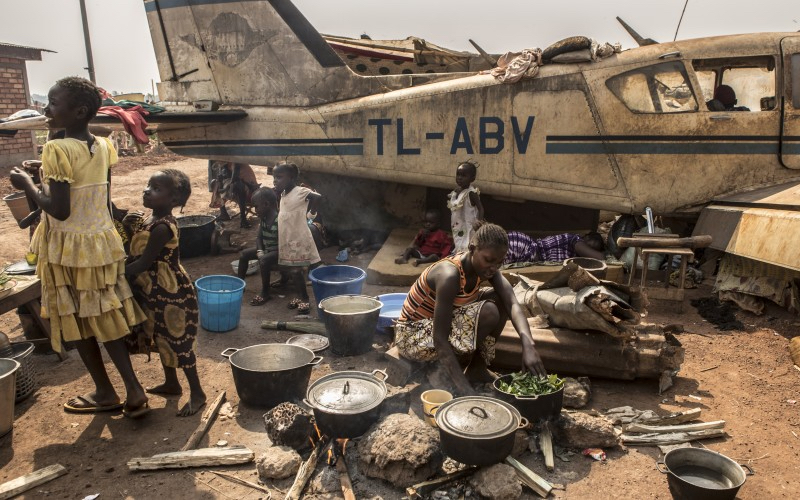
Repeal of Dodd-Frank Threatens Regional Stability in Central Africa
The potential repeal of major regulatory legislation in the US threatens to allow armed groups in Central Africa to utilize conflict minerals far more easily.
On February 14th the Secretariat of the International Conference of the Great Lakes Region (ICGLR) released a statement condemning the potential repeal of the Dodd-Frank Act of 2010. The Conference of 12 member states from Sub-Saharan Africa asserted that the repeal of the legislation would contribute to the “generalized proliferation of terrorist groups, trans-boundary money laundry and illicit financial flows” in the long term.
The key section of the legislation is Section 1502, innocuously titled “Conflict Minerals.” This small 4-page Section, nestled 838 pages into the 848-page document, aims to combat the use of conflict minerals to finance armed groups by tasking the SEC to oversee where the minerals came from and USAID to explore the connections between violence and the minerals.
The ICGLR says that in response to Section 1502’s implementation and de-facto embargo of conflict minerals in the region, they introduced the Regional Initiative against the Illegal Exploitation of Natural Resources (RINR) to provide more transparency to the process. The RINR’s structure and policies were designed to facilitate the mineral trade, which is as much a source of income for the governments in Central Africa as the resources were for armed groups. In particular, the organization’s adoption of the Regional Certification Mechanism (RCM) allows the DRC and neighboring countries to legally sell minerals to companies based in the US, and “aims at breaking the link between mineral revenues and rebel financing.” This process is technically independent from Dodd-Frank, but the processes work in tandem and demonstrates good faith on the part of the US.
According to Reuters, relevant business groups have strongly opposed the measure, arguing that “it costs too much for companies to trace the source of minerals through the supply chain.” The minerals in question, generally used for manufacturing electronics and jewelry, are abundant in the eastern Congo and neighboring countries. The SEC estimated in 2014 that the law costs companies $200 million USD per year.
Two weeks prior to the ICGLR’s statement, President Trump promised to do “a big number” on Dodd-Frank, reiterating a promise made during his 2016 campaign to dismantle the legislation. More alarming still for the affected countries is a leaked draft of a directive from the Trump Administration calling for a 2-year suspension of the rule, and for the departments of state and treasury to come up with a plan “for addressing human rights violations and the funding of armed groups in the Democratic Republic of Congo.” While Reuters emphasized that this is a draft, the intentional targeting of Section 1502 and removal of the SEC from the process is extremely alarming for the affected countries.
The ICGLR’s fears about security in the wake of these announcements are well-founded. Conflict minerals have historically been a source of funding for armed groups in sub-Saharan Africa, and have fueled some of the most violent conflicts since the Second World War. The Congo Wars from 1997-2003 resulted in an estimated 3.9 million deaths and were largely funded by armed groups exploiting valuable conflict minerals, such as the coltan rush in the early 2000s. Of the 12 members of the ICGLR, 7 participated militarily in the conflicts, and others, such as the Central African Republic, were the victims of fighters taking refuge from the conflict or fighting for pay. Section 1502’s regulations make it more difficult to illicitly acquire these minerals, and cut these groups’ funding.
Without the legislation, armed groups in the region will have a heightened ability to illicitly sell these minerals to multinational corporations and finance their conflicts, with potentially disastrous results for regional stability and human security. Central Africa has not seen a conflict as intense as the Congo Wars and the following series of intrastate conflicts since 2010, and the ongoing conflicts in the region, such as the fight against Joseph Kony’s LRA, do not pose an existential threat to the nations it operates within. If any armed group with control over key mines or diamond fields is able to sell them to multi-national corporations, they will be better positioned to acquire the arms and manpower that sustains major conflicts. The ongoing conflict in the CAR, for instance, will only escalate if armed groups are able to capture and sell large quantities of the country’s diamonds.
That’s not to say that only rebels are funded by conflict minerals, nor that Section 1502 is the only mechanism to stymie the trade of conflict minerals. The governments involved in the Congo Wars were largely financed through conflict minerals or incentivized to continue the conflict to extract as much as they could. While Section 1502 hurts the ability of most armed groups to profit off of conflict minerals, it also puts the governments of these countries in the position to be the only group that can sell these resources legitimately, reinforcing peace, but also a less-than-democratic status quo.
Several mechanisms, including the Kimberly Process, exist independently of any US legislation and will continue to function in its absence. What was unique about Section 1502, however, was that the legislation acknowledged the role of demand for minerals from the US. By removing the regulation, the US is washing its hands of the issue and framing a problem caused by global trade and demand as a strictly “African” problem, with potentially disastrous results.
The degree to which President Trump will do “a big number” on the legislation remains unclear at this stage, even with the leaked draft. While Section 1502 is tangentially related to the theme of the legislation, it has little to do with the financial oversight or regulatory reforms that are the bill’s major focuses. Should the act be repealed in its entirety, new legislation would need to be enacted to replace Section 1502’s role in preventing armed groups from exploiting conflict minerals. Should the bill or enforcement of it be curtailed and not outright repealed, the hope of keeping Section 1502, and the peace it fosters, remains. Additionally, if the leaked memo represents the administration’s genuine intentions, President Trump has tasked the Department of State with seeking alternative solutions. The memo allots the State Department and Treasury six months to solve the problem.

